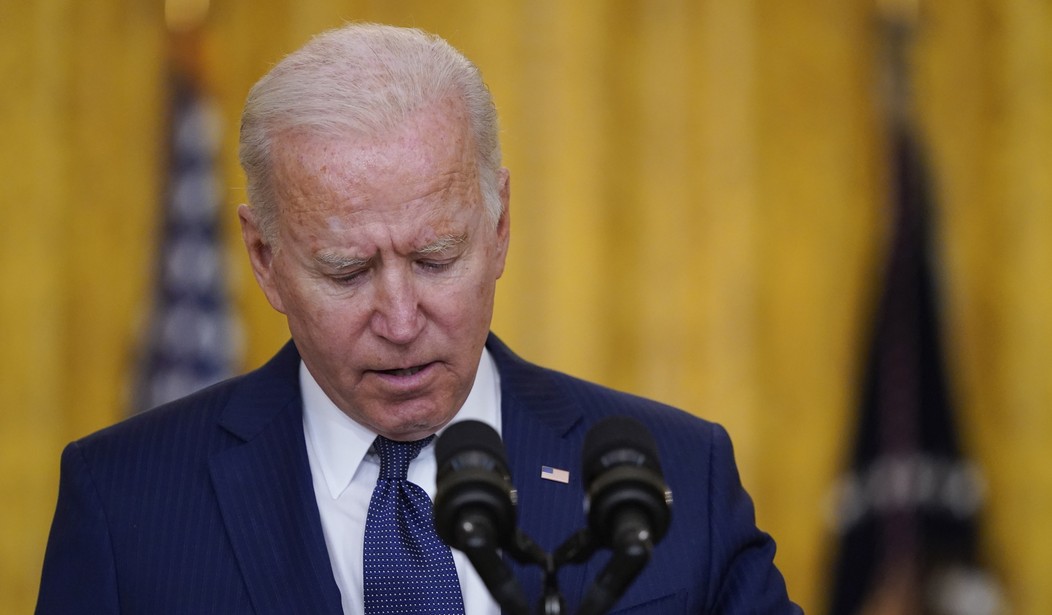I hate to say we told you so back in February — so let’s let one of Barack Obama’s economists say it instead. “They poured kerosene on a fire,” former Obama administration economic adviser Jason Furman explained to the Associated Press. Not only does Furman contradict the happy talk about inflation coming from Joe Biden and the Left these days, he pins the inflationary tail squarely on the donkeys, too.
You have to read well past the jump to get to this, but it’s worth it:
“A sizeable chunk of the inflation we’re seeing is the inevitable result of coming out of the pandemic,” said Furman, now an economist at the Harvard Kennedy School.
Furman suggested, though, that misguided policy played a role, too. Policymakers were so intent on staving off an economic collapse that they “systematically underestimated inflation,” he said.
“They poured kerosene on the fire.”
A flood of government spending — including President Joe Biden’s $1.9 trillion coronavirus relief package, with its $1,400 checks to most households in March — overstimulated the economy, Furman said.
“Inflation is a lot higher in the United States than it is in Europe,” he noted. “Europe is going through the same supply shocks as the United States is, the same supply chain issues. But they didn’t do nearly as much stimulus.’’
That’s precisely what we argued in the opening days of Joe Biden’s administration. Congress had just passed a stimulus bill less than two months earlier, and most of the money from that hadn’t yet been spent. Some of the money from the April 2020 stimulus hadn’t been spent yet either. Adding too much stimulus — especially consumer stimulus in a situation where supply issues would exist — were so directly inflationary that it hardly could be contradicted.
Those warnings came from liberals as well, most notably former Treasury Secretary Larry Summers. In early February, he warned that the Biden package overshot the target and ran a high risk of producing the economic conditions we see now:
First, while there are enormous uncertainties, there is a chance that macroeconomic stimulus on a scale closer to World War II levels than normal recession levels will set off inflationary pressures of a kind we have not seen in a generation, with consequences for the value of the dollar and financial stability. This will be manageable if monetary and fiscal policy can be rapidly adjusted to address the problem. But given the commitments the Fed has made, administration officials’ dismissal of even the possibility of inflation, and the difficulties in mobilizing congressional support for tax increases or spending cuts, there is the risk of inflation expectations rising sharply. Stimulus measures of the magnitude contemplated are steps into the unknown. For credibility, they need to be accompanied by clear statements that the consequences will be monitored closely and, if necessary, there will be the capacity and will to adjust policy quickly.
The Biden administration and its allies wasted no time in declaring that Summers had no idea what he was talking about. Politico reminded its readers yesterday of the “fierce” response to his warnings, and wonders whether Biden and his team owe Summers an apology:
The reaction from the White House was fierce. Top advisers rushed to the cameras to push back. Summers was “flat-out wrong” that Biden’s team was “dismissive” of inflation risk, said economic adviser JARED BERNSTEIN, who repeated what would become the Biden mantra on the stimulus: “the risks of doing too little are far greater than the risks of going big.”
Privately, White House officials were withering in their attacks on Summers. …
There is a lesson here about the insularity of this White House: Summers was correct about inflation, but Biden’s economists dismissed him and some attacked him personally. It took months for them to fully come around — and it only happened after Biden’s approval rating suffered from voters’ perception that he wasn’t attentive to their concerns, a shellacking in the off-year elections in which inflation was a top concern and blindingly obvious data like that released today.
Summers predicted that would happen too, although perhaps too subtly for the White House to recognize. Summers had noted that the Biden administration wanted to prioritize social justice in its programs but had left itself no budgetary room for that purpose, thanks to the massive scope of stimulus spending. Not only does Biden lack budgetary capital for that purpose, his massive incompetence has entirely depleted his political capital for that agenda. His job approval hasn’t fallen into the thirties because of a perception that Biden is overly concerned about voter priorities and household issues, after all.
The shift in the media on inflation over the last day or so underscores that risk. For the last few months, the media has been happy to pass along all of the happy talk about “transitory” inflation, scoff at families who stress out over rising food prices, and even paint inflation as a great sign for America’s economy. After yesterday’s CPI numbers hit a 31-year record for inflation and show no sign of slowing down, the fuel for gaslighting has apparently run out, and Biden’s suddenly looking incompetent and lost on the issue that generally matters most to voters — the economy.
And … we told you so.








Join the conversation as a VIP Member